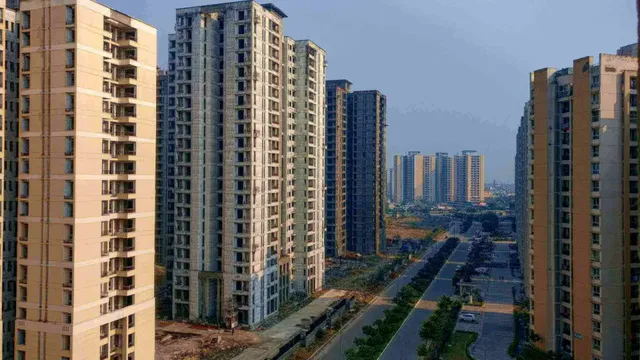How Can Investors Determine an Occupied Flat's Value
Why is an occupied flat a good investment? When looking at houses with current renters, this question frequently comes up. There are other factors than location and building quality that affect an occupied apartment's value. Investors must consider market trends, legal considerations, and rental revenue. Every element influences the property's overall financial attractiveness. Making better financial decisions is facilitated by having a better understanding of these factors.

The Impact of Rental Income on Value
The core of an apartment's financial potential is its rental revenue. Investors look at the rent that is now available and contrast it with market prices. A competitive rental price increases the apartment's appeal for long-term profits. Rent payments that are regular show steady income, which raises the property's worth. Strong demand in the region is indicated by high rents when compared to comparable properties. With future modifications, properties with below-market rentals may still have potential. Accurate appraisal is ensured by knowledge of rental patterns.
The Investment is Shaped by Tenant Agreements
Tenant agreements have an impact on how adaptably the property may be used. While long-term leases frequently provide stability, they also restrict investors' direct control. Shorter contracts could provide more chances to sell or modify rentals. Local rules affect things like notice periods and tenant rights. Tenants' compatibility with investors' long-term goals must be evaluated. A thorough comprehension of agreements avoids future legal issues. The attractiveness of the investment is greatly influenced by these agreements.
Location Remains a Deciding Factor
The location of the flat is frequently the first factor that investors think about. The demand for rentals is driven by proximity to markets, schools, and public transportation. Future appreciation is promised in areas with burgeoning industry or innovation clusters. Good tenants are drawn to neighborhoods with facilities and safety. Apartments in rural places could be less expensive than those in urban areas. Long-term stability in rental revenue is also indicated by location patterns. Examining these specifics reveals the property's possibility for sale.
Condition of the Flat Affects Pricing
The physical state of a flat may have a big impact on how much it is worth. Rents for newly remodeled apartments are usually higher and require less repairs. Despite their potential for improvement, older homes with wear and tear may be less appealing. Maintenance expenses are influenced by the caliber of the power, plumbing, and appliances. Investors are typically put off by apartments with regular maintenance problems. The property is kept in rentable condition by routine inspections. Determining a reasonable price involves evaluating the apartment's condition.
Trends in the Market Showcase Upcoming Possibilities
The value of occupied apartments is frequently determined by changes in the real estate market. The local rental market's supply and demand are examined by investors. An area's potential for expansion is shown by rising property values. Rents are impacted by economic factors like as inflation and employment rates. Rental yield trends aid in determining if the flat achieves profit targets. Understanding Spanish real estate markets is consistent with the term inversion pisos ocupados. Investors may make well-informed decisions by keeping an eye on market movements.
Conclusion
To ascertain the worth of an occupied apartment, investors need to consider a number of criteria. Its financial appeal is influenced by every factor, from rental revenue to legal concerns. Risks are reduced and the possible return on investment is increased with proper research. Occupied apartments may be a lucrative addition to any property with careful consideration.